Pope appeals for Aung San Suu Kyi’s release and says she can stay with him at the Vatican
Former leader of Myanmar was removed from power in 2021 military coup and has been sentenced to 27 years in prison
Your support helps us to tell the story
From reproductive rights to climate change to Big Tech, The Independent is on the ground when the story is developing. Whether it's investigating the financials of Elon Musk's pro-Trump PAC or producing our latest documentary, 'The A Word', which shines a light on the American women fighting for reproductive rights, we know how important it is to parse out the facts from the messaging.
At such a critical moment in US history, we need reporters on the ground. Your donation allows us to keep sending journalists to speak to both sides of the story.
The Independent is trusted by Americans across the entire political spectrum. And unlike many other quality news outlets, we choose not to lock Americans out of our reporting and analysis with paywalls. We believe quality journalism should be available to everyone, paid for by those who can afford it.
Your support makes all the difference.Pope Francis has appealed for the release of Myanmar’s jailed former leader Aung San Suu Kyi and even offered to shelter her at the Vatican.
“I asked for Ms Suu Kyi’s release and received her son in Rome,” he reportedly said in a private conversation during his recent 12-day tour of southeast Asia. “I offered the Vatican to receive her in our territory.”
Myanmar’s future, the Pope added, “must be ... based on respect for the dignity and rights of all, on respect for a democratic order that allows everyone to contribute to the common good”.
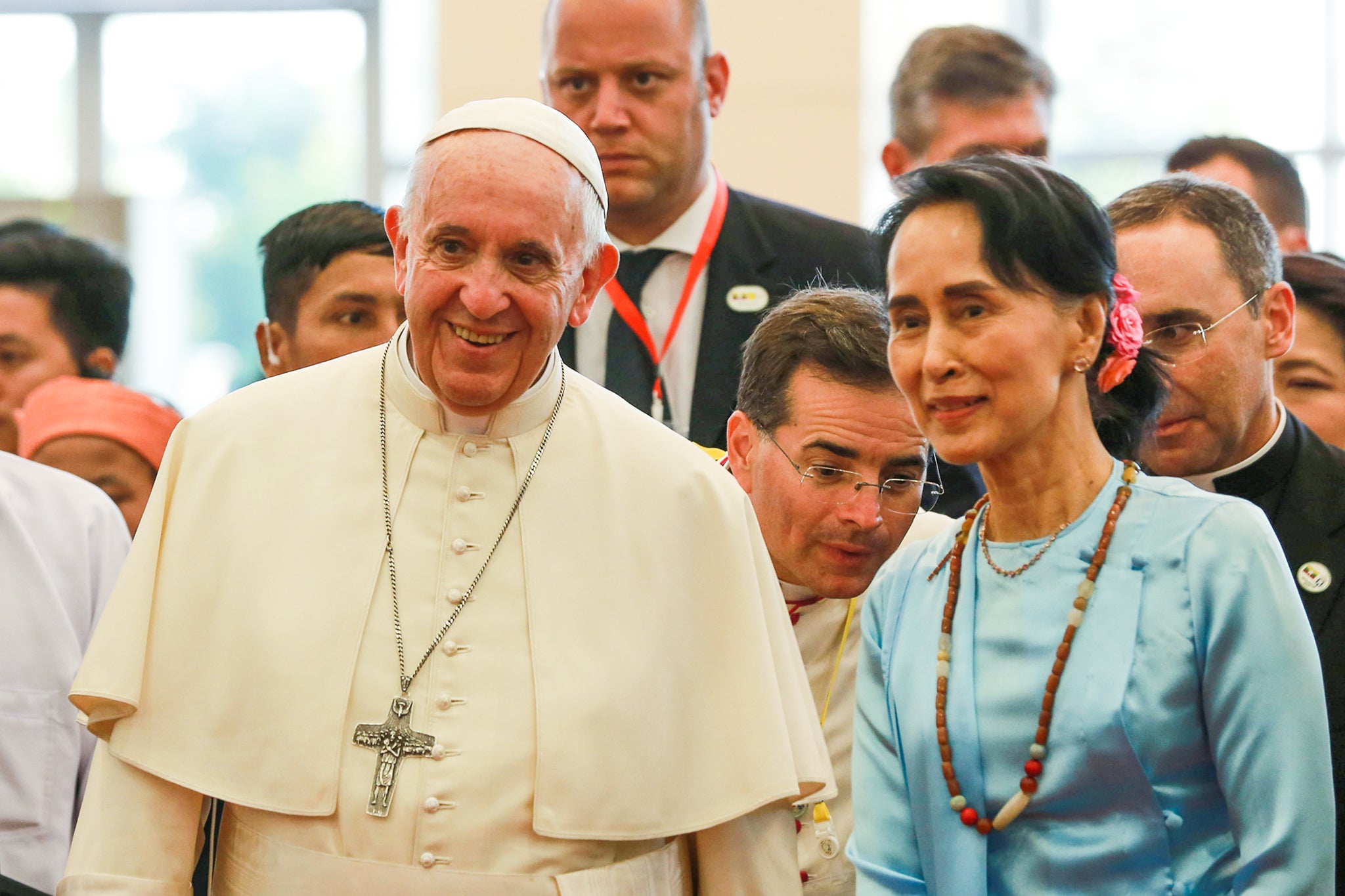
The remarks were reported in an article for Italian daily Corriere della Sera by Father Antonio Spadaro, a Jesuit priest who attends the Pope’s meetings and writes about them afterwards with his permission.
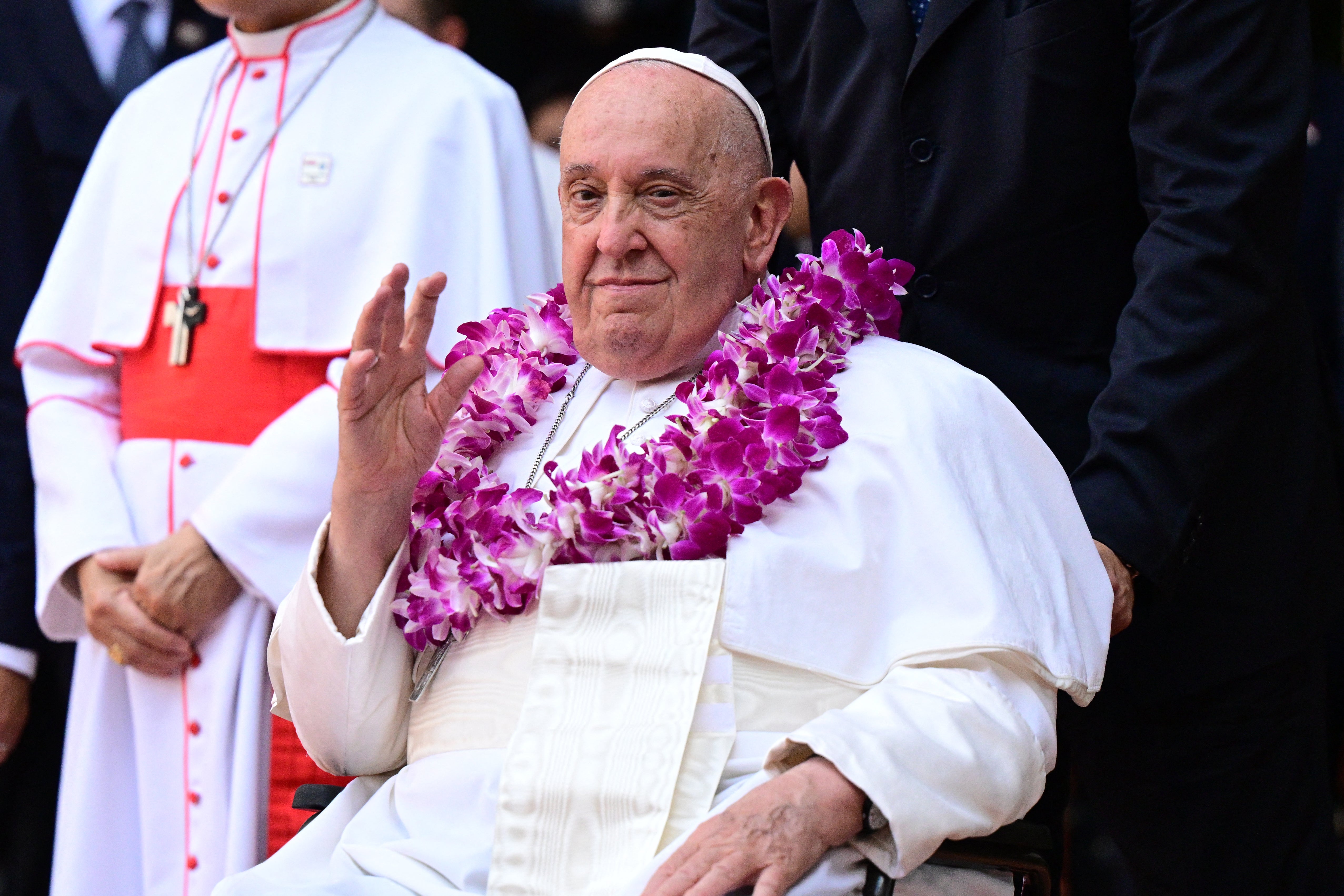
Ms Suu Kyi has been sentenced to 27 years in prison after the military removed her and her democratically elected government from power in a 2021 coup.
She was jailed on a string of charges, including the illegal import of walkie-talkies, that are widely viewed as being politically motivated.
Many leaders have called for her unconditional release along with thousands of others who were detained in a bloody crackdown against pro-democracy protests following the coup. While the protests have been quashed, the military is now engaged in a bitter civil conflict with rebel groups along much of the country’s border regions.
Ms Suu Kyi, daughter of modern Myanmar’s founder, was hailed as a human rights icon and was awarded the Nobel Peace Prize after waging a long fight to restore democracy in her country, during which she spent many years under house arrest.
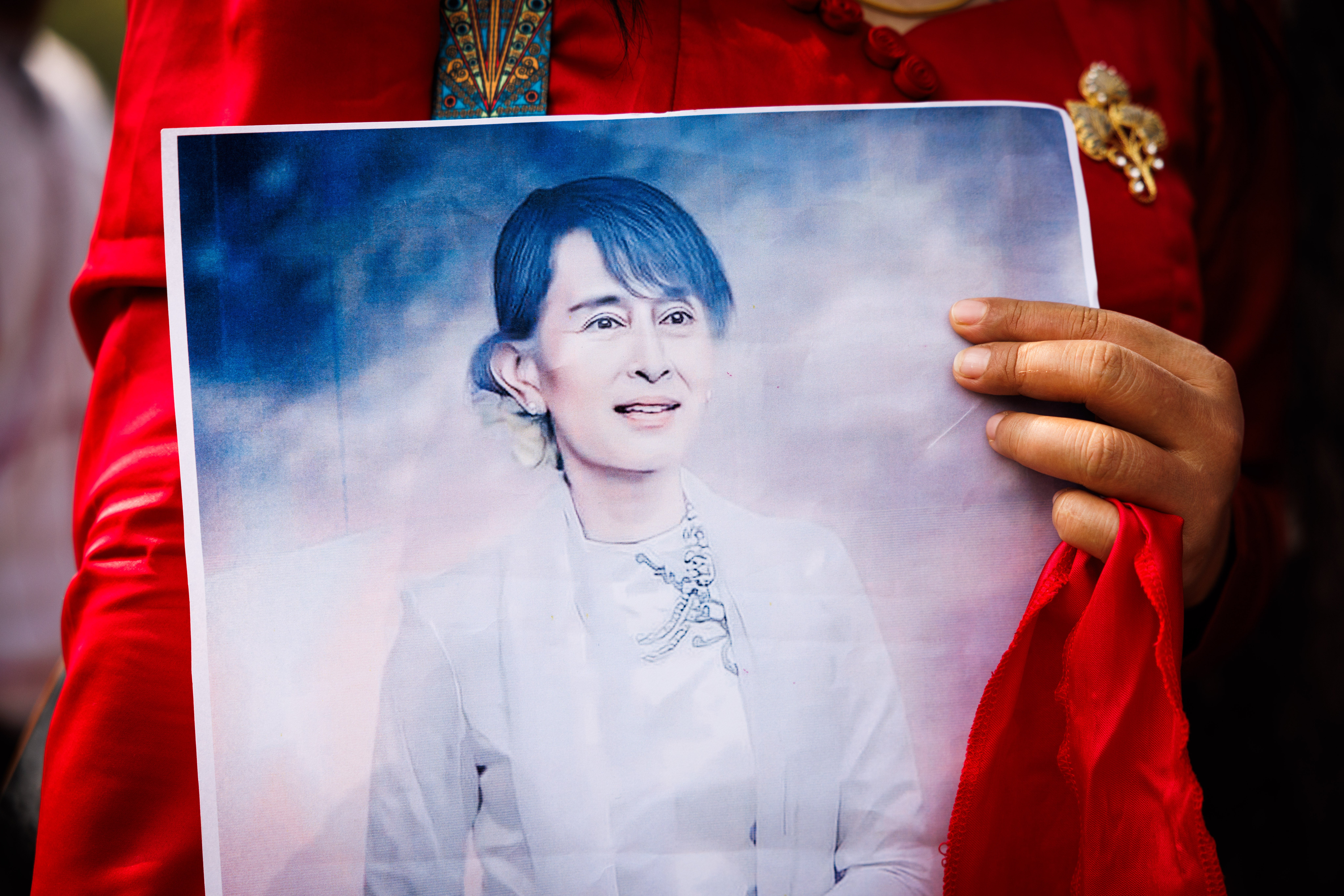
She was named state councillor in 2016, becoming the de facto leader of the country, after her NLD party won the first democratic elections for more than five decades.
Ms Suu Kyi was heavily criticised for appearing to defend the brutal treatment of the country’s Rohingya Muslim minority.
She declared that Rohingya refugees had exaggerated the extent of atrocities and that Myanmar was the victim of “unsubstantiated narratives” by human rights groups and UN investigators just before the International Court of Justice ruled that the Muslim minority remained “at serious risk of genocide”.
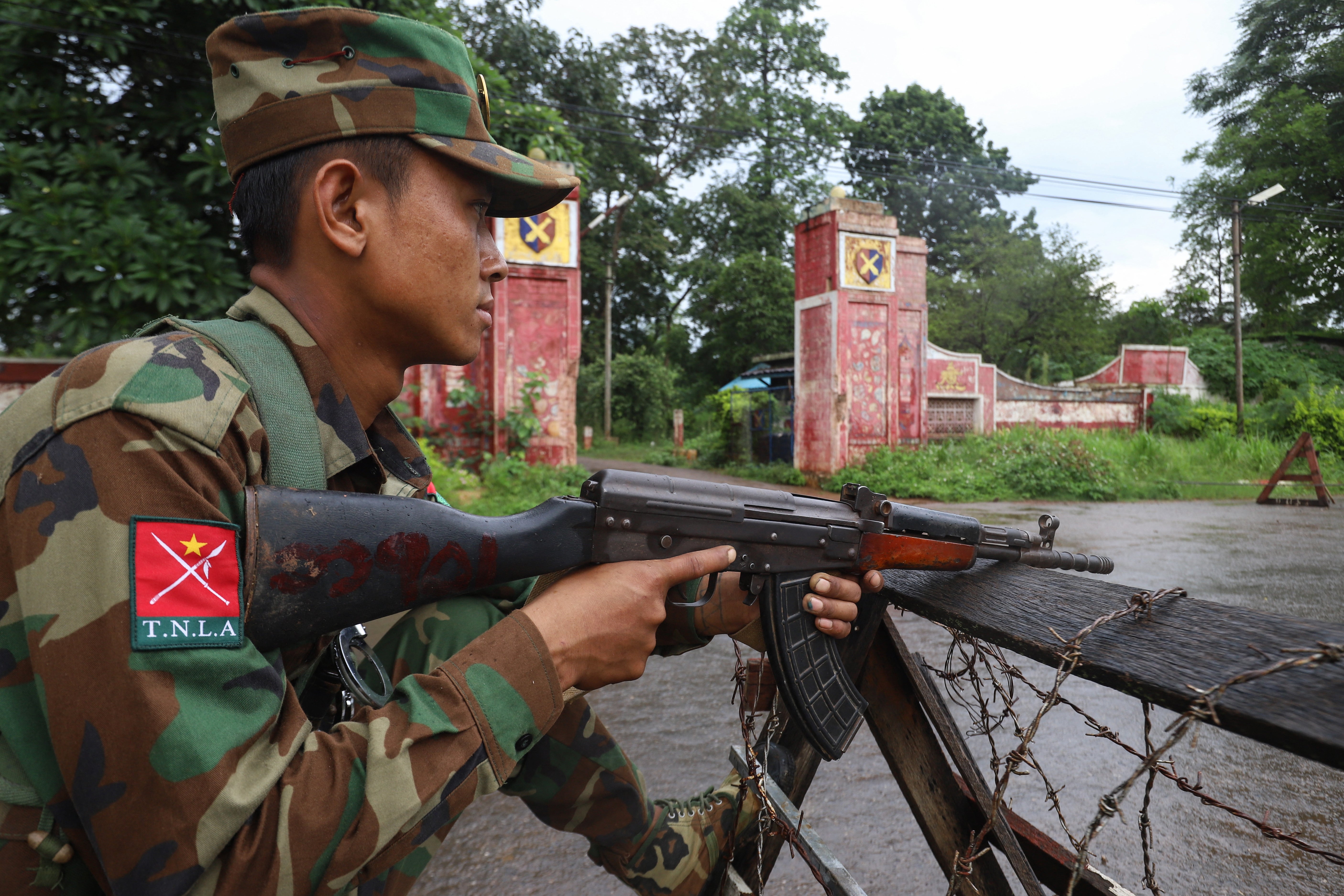
Ms Suu Kyi met Francis in November 2017. Although the Pope called for peace and respect for human rights in Myanmar, he was heavily criticised for not directly mentioning the plight of the Rohingya.
The Pope’s latest remarks came in the wake of a UN report stating that Myanmar’s ruling military junta had ramped up killings and arrests in an apparent bid to silence critics. The junta is also recruiting soldiers for its escalating conflict with ethnic tribes.
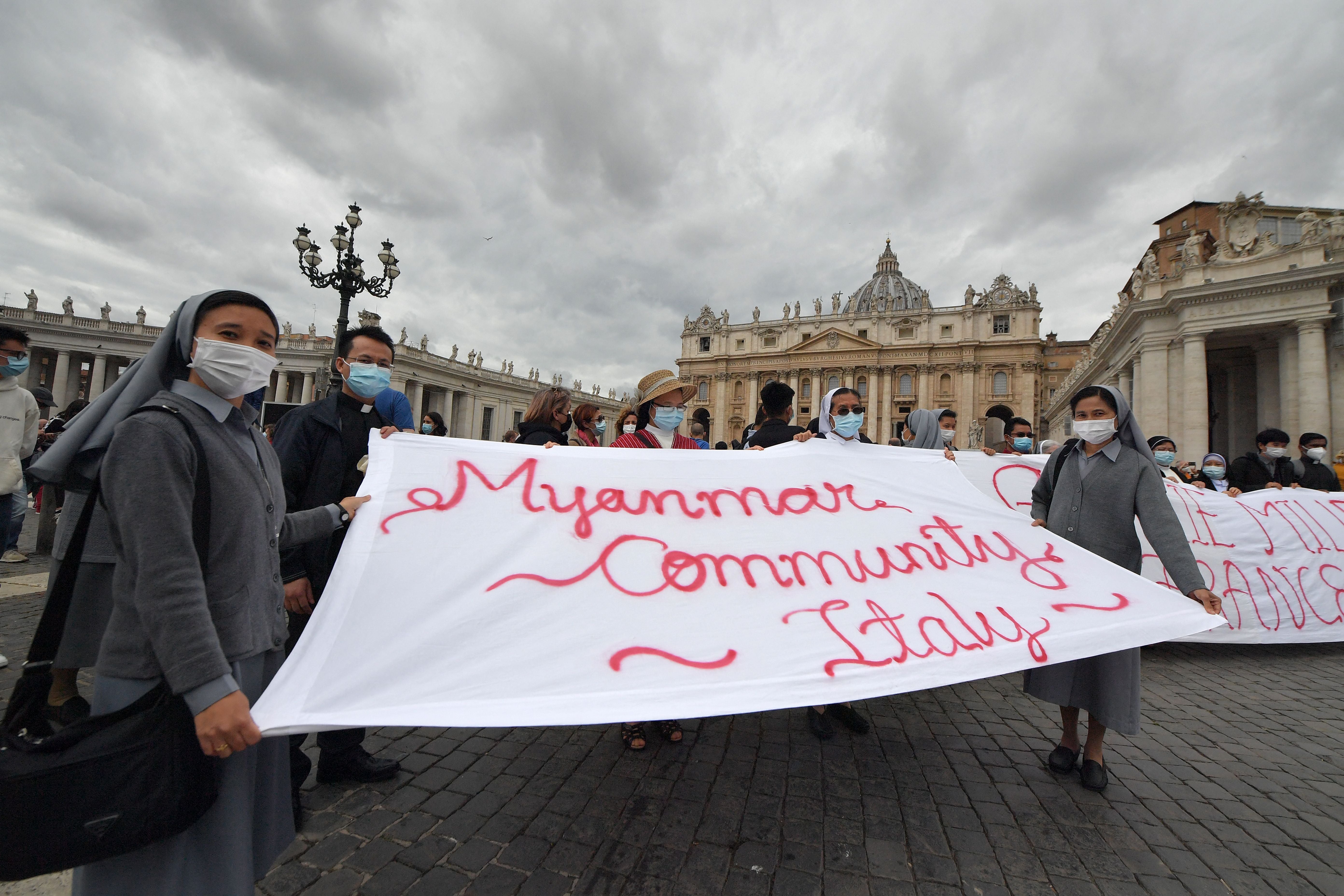
The junta this month declared three of the most powerful armed ethnic groups fighting against the country’s army as terrorist organisations, state broadcaster MRTV reported. Myanmar is engulfed in a civil war which has lately seen the army forced onto the back foot by militias seeking autonomy for their regions.

Join our commenting forum
Join thought-provoking conversations, follow other Independent readers and see their replies
Comments